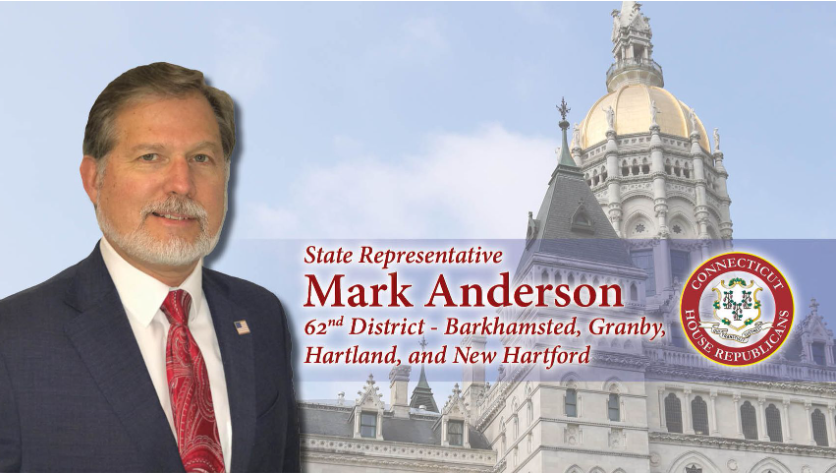As our work in committees winds itself down, I wanted to provide you with an update during this very busy short session which ends on May 4th. Over the last several days, I have testified on two bills in front of the Finance, Bonding, and Revenue Committee.
As we move through April, the expectation will be long days in sessions toward the end of the month. I will be sure to keep you up-to-date on the issues that matter to you and your family.
H.B. No. 5489 An Act Concerning the Indexing of Certain Personal Income Tax Thresholds and Exemption Amounts Testimony
Inflation just hit its highest level since 1982. According to the Bureau of Labor Statistics, the consumer price index (CPI) rose 7.9% over the last 12 months. Everything from gas to groceries has increased in price during the last year, and it will continue to increase in the near future. While inflation affects everyone, it is especially impactful on lower and middle-class Americans.
As inflation rises at a pace we have not seen in decades, wages have struggled to keep pace. Nevertheless, Connecticut’s income tax brackets and personal exemptions are not indexed to inflation. This results in an unintended tax increase on our constituents which pushes them into a higher tax bracket even though their real income relative to the cost of living has remained stagnant. This is often referred to as “bracket creep” or a “hidden tax” and represents an unfair burden placed on residents by no fault of their own. This proposal will help alleviate that burden by indexing the state’s personal income tax brackets and personal exemption to inflation using the chained consumer price index for all urban consumers (C-CPI) beginning in 2023. Indexing the personal income tax brackets and personal exemption to inflation will help alleviate the issue of increased income taxes on residents who saw their wages increased due to inflation, while their purchasing power remained the same. Connecticut residents pay some of the highest income taxes in the country, contributing billions to the state. Indexing these provisions of the income tax code is a common-sense public policy which enjoys broad support across both political parties.
We thank the committee for raising this bill and urge the committee to allow it to move forward in the process.
S.B. No. 463 An Act Concerning an Analysis of the Avenues to Maximize the Value of Certain State-Owned Real Property Testimony
I stand up in favor of keeping Brainard Airport open, and in opposition to Senate Bill 463.
Brainard opened in 1921, and is believed to be the first municipal airfield in the U.S.. Amelia Earhart and Charles Lindbergh landed there. The city transferred control to the state in 1959.
When I learned that there was a new move afoot to close Brainard, I educated myself by attending a forum, reading the 2016 report and dozens of articles, in order to make the best decision, should I be voting on this bill. This research convinced me that based on costs and benefits, Brainard Airport should remain open.
A couple of years ago, the honorable mayor of the Capitol city extolled Hartford’s value as a regional asset. I agree. Brainard Airport is a leading example of this. Now, the elected representatives of Hartford want to close Brainard so that it can be put to what they believe is a better use. It is not clear what specific use that they have in mind.
In 2006, the MDC proposed redeveloping the land for commercial and manufacturing space, stores, apartments, a marina, a rebuilt trash-to-energy plant, an expansion of its nearby waste water treatment plant and a river park [Courant 1/27/22]. Until there is a specific feasible plan published, we don’t what proponents of SB 463 may have in mind. Fulfillment warehouses have been mentioned, a use that might be compatible with an airport which would facilitate shipping.
The Connecticut Airport Authority owns Brainard Airport, and the purchaser would be required to buy it from them for $30-50 million. Will the purchaser, who may or may not be the city of Hartford, ask for state financing for this purchase? I suspect yes.
In this bill, we are asked to allocate $1.5 million of state rather than city money, to analyze obstacles to redevelopment of the land occupied by Brainard Airport. This bill is based on the assumption that it should be redeveloped, despite a 2016 study funded by the state that concluded that the airport is the best use of this land. Doing another study, that ignores the conclusion of the previous study, is a poor use of state taxpayers money.
The property is on a flood plain protected by a dike. It is subject to flooding during heavy rain. It is collocated with a sewer plant on one end, which is not an attractive neighbor to retail or residential development. There is a trash-to-energy plant, scheduled for closing, on the other end. There could be very significant clean-up costs for all of this land. There is also the risk of disturbing the land and polluting the river. But we don’t need another study to know that the financial costs of preparing the land for redevelopment are very high. Will the state be asked to subsidize this cleanup, which could cost far more than the purchase price? I suspect yes.
I fear that if the Connecticut Airport Authority gives up control of this property that it will sit undeveloped for many years, due to the extensive clean up required, lack of a specific plan, flood risk, and lack of known ready investors.
A legislative colleague of mine from Stamford, who sits near me in the chamber, but is on the opposite side of the political spectrum, submitted written testimony in opposition to this bill. I hope that this is the tip of the iceberg of bipartisan support to keep Brainard open.
Please stop Senate Bill 463.
